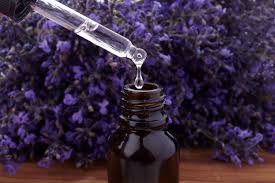Essential oils have been used for centuries in rituals of healing, beauty, and wellness. In modern skincare, oils like Lavender and Geranium are celebrated for their soothing and aromatic qualities. But behind their natural allure lies a delicate balance: while they can nurture the skin, they also carry risks if used incorrectly.
So, where is the fine line between help and harm? Let’s uncover the truth.
Lavender Oil: The Calming Classic
-
Benefits:
-
Naturally soothing, helps reduce redness and irritation
-
Mild antimicrobial properties, supportive in acne-prone routines
-
Aromatherapy benefits—calms the mind and supports relaxation
-
-
Risks:
-
Can trigger allergic reactions in sensitive individuals
-
Overuse may disrupt skin’s barrier, leading to dryness or irritation
-
Geranium Oil: The Balancing Act
-
Benefits:
-
Regulates sebum production, making it ideal for combination skin
-
Natural astringent qualities help improve the look of pores
-
Antioxidant properties fight free radical damage
-
-
Risks:
-
May cause contact dermatitis in very sensitive skin
-
Potency requires dilution in well-balanced formulations
-
The Science Behind Essential Oils
Essential oils are highly concentrated plant extracts. Their potency is what makes them both powerful and potentially problematic.
-
In controlled amounts, they can provide antioxidant, antimicrobial, and soothing effects.
-
In excess or poor-quality blends, they may lead to sensitization, a long-term condition where the skin becomes increasingly reactive.
Halal Perspective: Are Essential Oils Permissible?
Essential oils like lavender and geranium are plant-derived and halal-friendly. However, concerns arise if they’re diluted in non-halal solvents or alcohol.
At Purelab Care, we only use plant-sourced, halal-verified essential oils—ensuring purity, safety, and compliance in every formula.
How to Use Essential Oils Safely in Skincare
-
Concentration matters: Look for products where essential oils are balanced with barrier-supporting actives (like ceramides or panthenol).
-
Patch test first: Especially if you have sensitive or allergy-prone skin.
-
Pair wisely: Use with calming agents such as aloe vera or allantoin to minimize potential irritation.
-
Avoid DIY misuse: Directly applying undiluted essential oils can cause serious irritation.
✅ The Do’s & Don’ts of Essential Oils in Skincare
Do’s
-
✔ Choose formulations from trusted brands with controlled concentrations.
-
✔ Check ingredient labels for halal verification if that matters to you.
-
✔ Perform a patch test before applying new products to your face.
-
✔ Combine with soothing, hydrating actives for balance.
Don’ts
-
✘ Don’t apply essential oils directly to your skin without dilution.
-
✘ Don’t assume “natural” means safe—concentration and formulation matter.
-
✘ Don’t overuse—more isn’t better and may cause irritation.
-
✘ Don’t ignore irritation signs—stop use if redness or burning occurs.
The Bottom Line
Essential oils like Lavender and Geranium can be both allies and adversaries in skincare. When used thoughtfully, they add soothing, balancing benefits. When misused, they can disrupt and damage.
At Purelab Care, we embrace essential oils responsibly—blending them in precisely measured, halal-compliant formulations that deliver elegance, safety, and efficacy without compromise.



